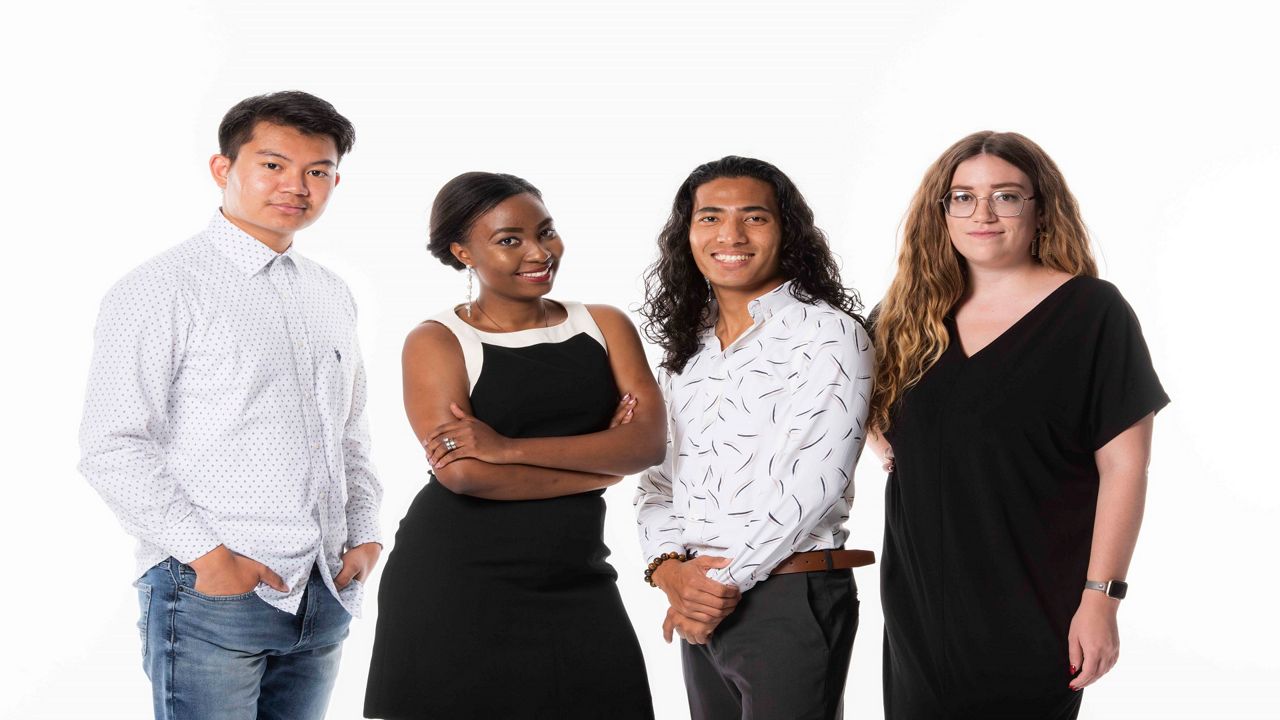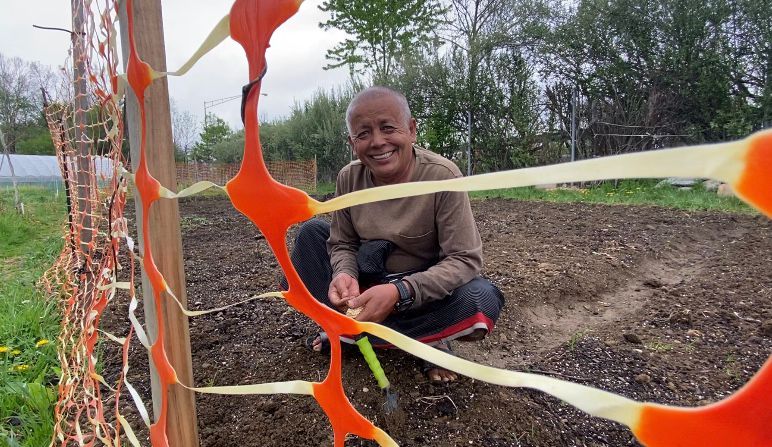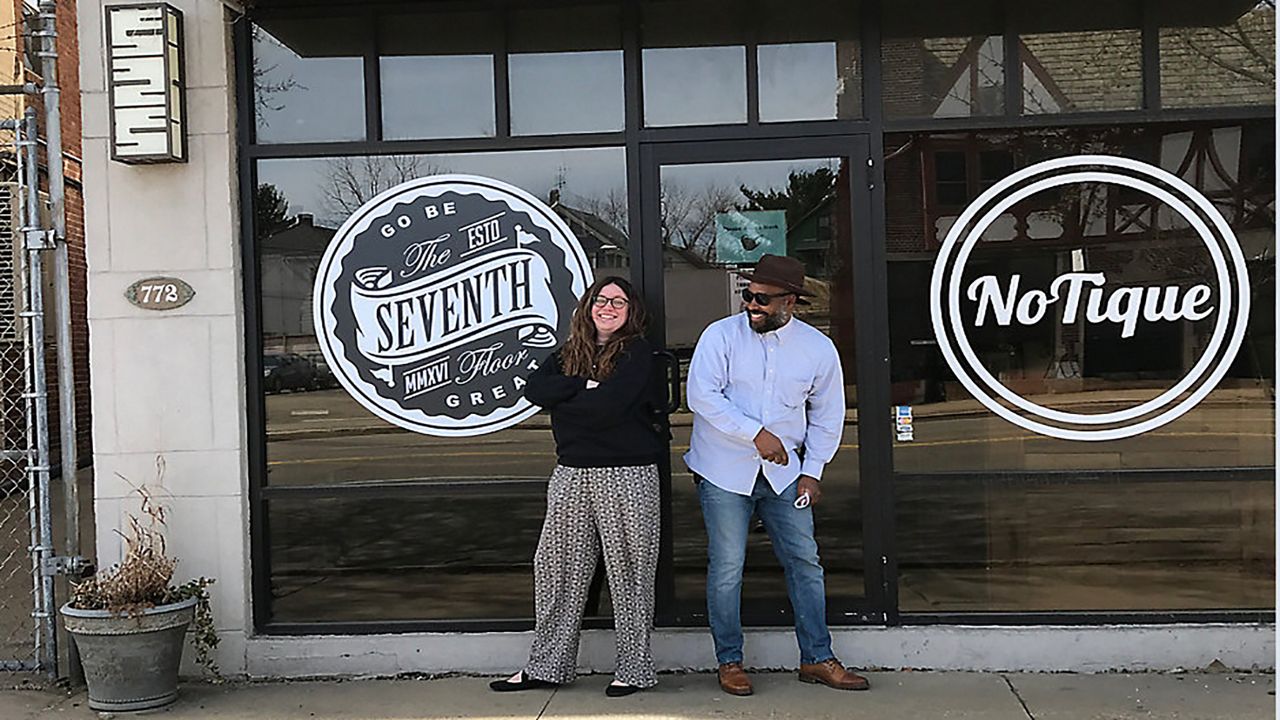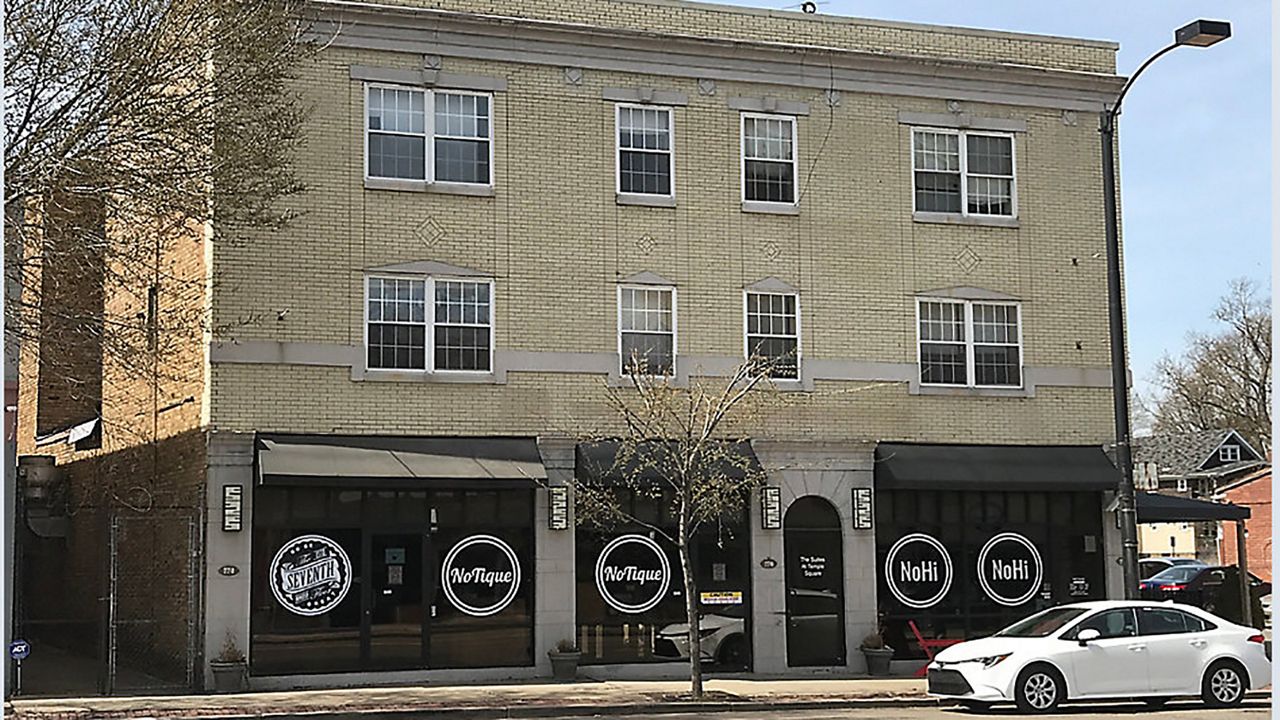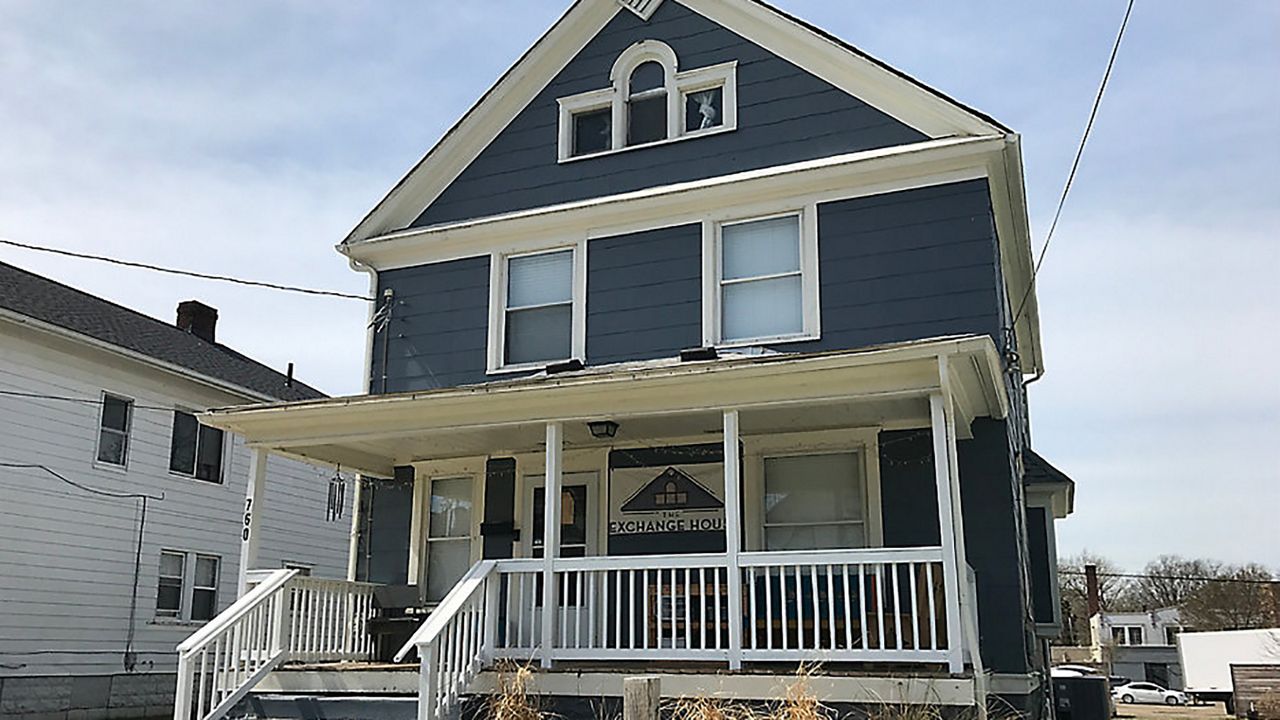AKRON, Ohio — The language barrier is among the top challenges immigrants and refugees face in a new country. Customs, religions and cultures often are very different, but the language barrier becomes more stressful with the onset of illness, or when accidents happen.
That’s where culture brokers come in to play. These are usually young immigrants who take the lead, serving as communicators for families and friends, sometimes speaking for their entire community.
To illustrate the role of the culture broker, Akron’s Gum-Dip Theatre will present “Brokers Without Borders,” a new play featuring a multiethnic, former-refugee ensemble.
“Brokers Without Borders” takes place at the Balch Street Theatre, 220 S. Balch St in Akron. Performances take place over two weekends: Nov. 12-14 and Nov. 19-21. Friday and Saturday performances will be at 7 p.m., and Sundays at 2 p.m. Tickets can be purchased online for $15, or at the door at a pay-what-you-can rate.
Masks are required for audience members, and the theater will be set up for social distancing, said Katie Beck, an actor who co-founded Gum-Dip Theatre with actor Neema Bal.
“Brokers Without Borders” is part one of a multi-year project that will work to build coalition through original performances with immigrants, Beck said. After each performance, a short creative-response process will take place, in which audience members and artists engage in dialogue about the work.
In “Brokers Without Borders,” actors from the Bhutanese, Karen and Congolese communities will portray their broker roles in different scenarios, she said, showing how they serve as connectors linking community members to people and resources they need to lead healthy, productive lives in a new country.
The play includes monologues and dances revealing the actors’ personal experiences — from the challenge of navigating a brand-new world, to the joy of finding success in a global community, Beck said. The actors have learned lines in one another’s languages to portray additional characters.
Part of what makes these performances interesting is how culture brokering is different for each individual, Beck said.

One of the actors, Samantha Byake, 24, came to the U.S. from Congo with her parents and eight siblings in 2019. Byake's optimistic outlook informs her broker role, she said.
“This is a multitasking person,” Byake said. “Every obstacle that comes along you find a way of using it as a stepping stone, and then having the person on the other end to cross and get what they want.”
With a bachelor’s degree in psychology, Byake is continuing her education in nursing and works for Summa Health System. Her Congolese community has leaned heavily on her strong communication skills since she arrived, she said.
“My community uses me more than even how my family uses me,” she said. “Even at night, sometimes I'll receive calls that they need help.”
Serving as a broker can be physically and emotionally tiring, she said.
“Being a broker is not something easy because you don't have your personal space,” she said. “You don't have your personal time, like time that will let me rest. But I don’t want to when someone else is in need. And you need to attend to that. That's one of the challenges.”
Byake is courageous by nature and wants to pass her courage along to others, she said, because brokering can sometimes be very stressful.
“The most dangerous one is standing and facing people of power. I am a community advocate. I'm a refugee advocate,” she said. “So especially when I need to face people of power, especially when their rights are being violated. I need to stand and face these people for these voices that are being violated.”
There have been times, Byake said, when she has had to calm someone, even when she is not sure of a positive outcome.
“You need to come out and give them a hand and pull them, and be like ‘Everything will be fine,’” She said. “So that's putting yourself on a string, because you're not sure. It's just a matter of belief that you have that ‘OK, I think I can save this person.’”
But seeing someone feel relief after she has championed for them is, she said, the greatest reward.
“Helping someone, that’s the love,” Byake said. “Like when a person is in serious pain, and they no longer have hope. And you come and show them how everything will be fine. It's the best to see the person smiling.”
Helping restore someone’s rights by integrating people from both communities is another of Byake’s favorite aspects of brokering, she said.
“They don't speak the language and the other people don't speak their language,” she said. “You stand in between and make sure their hands are all together by you being the middle. It's a great factor, integration.”
Gum-Dip Theatre was named as a nod to Akron’s rubber industry and is illustrative of the city’s immigrant community, Beck said. Gum-dipping is a process used in tire-making in which coils are dipped in rubber gum to strengthen the adhesive.
“It's supposed to be a metaphor for strengthening community, like that adhesive,” Beck said.
Prior to the pandemic, Gum-Dip Theatre had put on performances in conjunction with the International Institute of Akron, primarily with actors from Akron’s Nepali community.
The theatre then began performing multi-cultural performances to highlight historically excluded voices, until the pandemic darkened the theater, Beck said.
“Brokers Without Borders” will once again bring together actors and audiences from different cultural backgrounds. For more information, visit Balch Street’s Center for Applied Theatre and Active Culture website.





